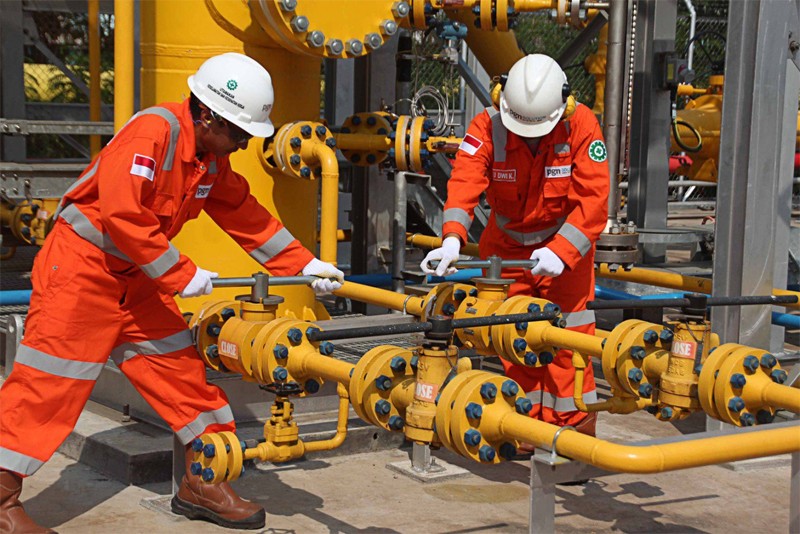Popular Reads
Top Results
Can't find what you're looking for?
View all search resultsPopular Reads
Top Results
Can't find what you're looking for?
View all search resultsJapan’s Inpex signs gas sale MoU with state-owned PGN
Japanese energy firm Inpex has signed a memorandum of understanding (MoU) with a third Indonesian state-owned enterprise (SOE) this year to sell gas from its multibillion-dollar Abadi megaproject in Maluku.
Change text size
Gift Premium Articles
to Anyone
Japanese energy firm Inpex has signed a memorandum of understanding (MoU) with a third Indonesian state-owned enterprise (SOE) this year to sell gas from its multibillion-dollar Abadi megaproject in Maluku.
Inpex Masela president director Akihiro Watanabe signed the MoU over the matter with state-owned gas distributor PGN, the largest such company in Indonesia, to sell gas from its still-in-progress Abadi liquefied natural gas (LNG) facility on Tanimbar Island, Maluku.
The producer signed in February similar deals with national electricity giant PLN and fertilizer maker PT Pupuk Indonesia. PLN plans to replace diesel with LNG in several power plants.
Abadi is expected to produce 1,750 million metric standard cubic feet (mmscf) of LNG and gas per day once operational in 2027.
“It will take some more time to normalize all the economical activity,” said Watanabe on Wednesday at the online signing ceremony held on the sidelines of the 2020 International Convention on Indonesian Upstream Oil and Gas, adding that “I strongly believe the execution of these agreements can be a good catalyst of normalization in Indonesia.”
Inpex’s case reflects the government’s reliance on its army of SOEs to create a strong enough domestic gas market to spur oil and gas companies to double Indonesia’s gas output over the next ten years to 12,300 mmscfd in 2030.
Valued at US$19.8 billion, the Abadi project is the most expensive of four nationally strategic upstream oil and gas projects that are spearheading efforts to achieve the goal. The four projects are slated to produce 3,484 mmscf of gas per day by 2027.
PLN is also slated to buy gas from two other gas megaprojects, namely BP’s Tangguh Train 3 in West Papua and state-owned oil company Pertamina’s Jambaran Tiung Biru in East Java.
“The agreements signed today are aligned with government policy of effectively utilizing domestic resources for Indonesia,” added Watanabe.
PGN business strategy and development director Syahrial Mukhtar said the MoU would be the starting point for both parties to start discussions on the gas sale and purchase agreement.
“This signing will be an important milestone for the two parties,” he said in a statement on Thursday.
Society of Indonesian Petroleum Engineers (IATMI) secretary-general Hadi Ismoyo told The Jakarta Post on Friday that SOEs were enough to spur such large demand, “but the question is whether they have the infrastructure to store and sell the gas.”
He previously pointed out that Indonesia’s gas infrastructure was not big enough to generate the demand needed to spur investment in upstream gas production.
A case in point was state engineering firm PT Rekayasa Industri (Rekind), which withdrew from the Cirebon-Semarang gas transmission pipe project in October after 14 years of zero progress in securing a reliable gas supplier and in determining viable transportation charges.
As a result, growth in Indonesia’s gas demand remains relatively weak. Annual gas consumption grew at an average annual rate of 1.2 percent between 2008 and 2018, slower than the 5.1 percent average in the Asia-Pacific, according to the latest BP Statistical Review.
Upstream Oil and Gas Special Regulatory Taskforce (SKK Migas) head Dwi Soetjipto acknowledged the challenge. He said such partnerships between producers and buyers were needed “to ensure all gas production can be monetized.”










